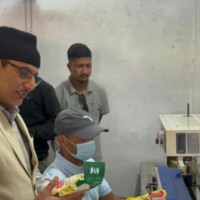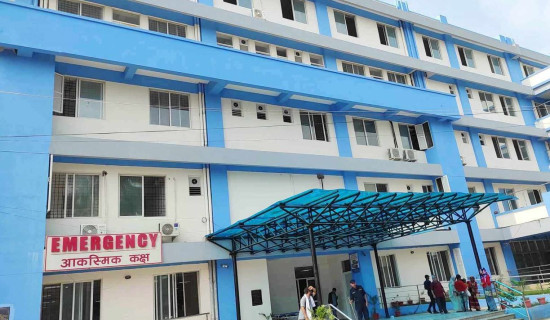- Monday, 1 September 2025
Clear Stand On Lipulek
Nepal has strongly defended its territory and sovereignty. During his meeting with Chinese President Xi Jinping in Tianjin of China on Saturday, Prime Minister KP Sharma Oli registered his strong objection to the recent agreement between India and China to reopen Lipulek Pass, a Nepali territory in the far west of the country, for border trade. Nepal was not consulted when its two immediate neighbours inked the deal to reopen the strategic route for trade and religious purposes. The Sino-India accord triggered a wave of protest in Nepal, which exerted pressure on Prime Minister Oli to raise the issue with India and China. PM Oli not only fulfilled the public expectations but also drew the attention of the international community to the encroachment of Nepali land by its southern neighbour. The two sides held talks on the eve of the Shanghai Cooperation Organisation (SCO) Summit 2025 that kicked off on Sunday in Tianjin. Around two dozen heads of state or government are participating in the SCO Summit.
In the bilateral meeting with President Xi, Prime Minister Oli referred to the 1816 Treaty of Sugauli, which stipulates that all the land to the east of the Mahakali River belongs to Nepal. This is the authentic evidence that justifies Nepal's legitimate claim over Lipulek, Kalapani and Limpiyadhura. Nepal expects China to pay heed to this evidence and support Nepal in its bid to restore its rights over this territory. In response, President Xi said he had no dissenting views on Nepal's stance and expressed that the issue should be resolved through dialogue between Nepal and India, as stated by Foreign Secretary Amrit Bahadur Rai, who was a member of the Nepali delegation in the bilateral talks, after the meeting.
Although the Chinese statement issued after the meeting between Prime Minister Oli and President Xi does include the Lipulek issue, President Xi's opinion carries weight for Nepal in holding talks on the border issue with India. The fresh dispute over Lipulek surfaced after India and China signed a deal to resume trade via the Lipulek pass during Chinese Foreign Minister Wang Yi's visit to India on August 18 and 19. Ten years ago, a similar agreement was reached when Indian Prime Minister Narendra Modi visited China. Nepal sent diplomatic notes to India and China, stating that their agreements undermined Nepal's sovereignty. Now that Prime Minister Oli has already received an invitation from Indian Prime Minister Narendra Modi to visit India, the Lipulek issue will surely be on the agenda of Nepal.
The Beijing-based Nepali embassy, in a statement, has clearly mentioned Prime Minister Oli's objection to the accord to reopen the Lipulek Pass. This document will serve as institutional evidence in defense of the nation's territory. India and China had reached a consensus on using Lipulek Pass around nine times in the past, but Nepal's protest was not so vocal. This time, Prime Minister Oli put the issue effectively before the top Chinese leadership. Its impact and message are clear and loud, as seen in the dissemination and presentation of this news in the Indian media outlets.
The meeting between Prime Minister Oli and President Xi remained significant in enhancing the bilateral relations between the two nations. They forged a consensus to activate their mechanisms to deepen cooperation and implement projects under the Belt and Road Initiative (BRI). Likewise, China is positive about opening more border points and supporting Nepal in areas such as fertiliser, petroleum exploration, human resource development, climate resilience and people-to-people bond. It is high time Nepal and China worked in close collaboration to implement the past accords to the mutual benefit.








-square-thumb.jpg)






